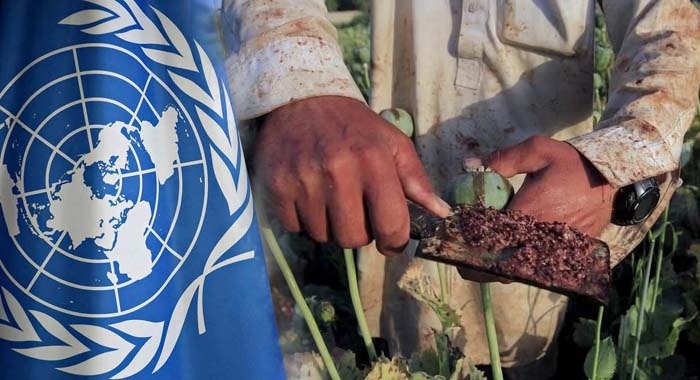The United Nations Office on Drugs and Crime (UNODC) has warned that worsening climate pressures in Afghanistan are pushing rural communities back toward opium cultivation, threatening to reignite a major source of global narco-terrorism.
According to UNODC, the combined impact of climate change and severe economic hardship has reduced the viability of legal crops, leaving farmers with few alternatives. In a post on X, the agency urged countries and international organisations to prioritise climate-resilience efforts to prevent a renewed surge in illicit crop production.
Earlier projections by UNODC showed that Afghanistan’s poppy cultivation could decline by 20 percent in 2025, with farmers’ income from opium sales nearly halved. However, the return of Afghan migrants from neighbouring countries is straining local labour markets and resources, raising fears that many may revert to illegal cultivation to survive.
The warning comes as world leaders convene in Belém, Brazil, for the COP30 climate summit, where over 190 nations are discussing emissions cuts, renewable energy expansion, and aid for climate-vulnerable countries. The Taliban, which remains diplomatically isolated, was not invited to the conference.
Analysts believe Afghanistan’s exclusion from global climate dialogue could further complicate efforts to tackle the intersection of climate distress, poverty, and the illicit drug economy. The UN has already ranked Afghanistan among the world’s ten most climate-vulnerable nations, facing prolonged droughts, floods, erratic rainfall, and dwindling water supplies—conditions that may increasingly feed into the narcotics-terror nexus if left unaddressed.





